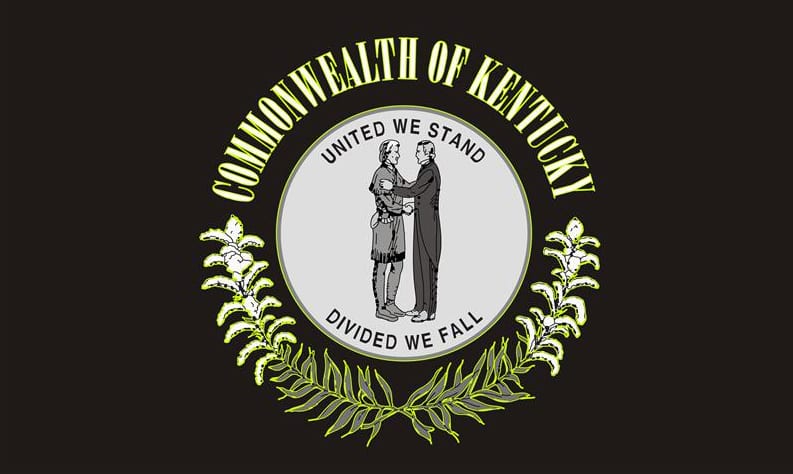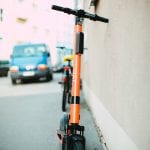

We are Attorneys and We are Riders
We Represent Kentucky Cyclists
Had a Bicycle Crash in Kentucky?
Contact Ben Dodge to see if the bicycle crash lawyers at Bike Accident Attorneys (BAA) can help. Unlike other lawyers who attempt to represent cyclists, our BAA lawyers actually ride and race their bicycles as well as appear and win in court. Most attorneys are just pencil pushers. We are court room litigators who are passionate about riding our bikes and we have associated local counsel in other states to allow us to help you in your state. Based on our expertise and experience we have also been admitted in other states to appear in court for our bicycle crash clients on a case by case basis. We can help you directly or ensure that you get the quality help you need in your state. Contact Ben Dodge now to see how we can protect your rights.
3 Tips on Choosing the Best Bicycle Crash Lawyer and Avoid Being Scammed
So how do you know if you have the best lawyer? There are 3 things to investigate when hiring a bicycle lawyer that can help you avoid a scammer. Some of that depends on what you think the “best” really means. To me, it is simple. The “best” lawyer will get you to the most advantageous position possible with as little cost as possible. That’s it. Nothing else to it. I have seen too many lawyers give up or miss out on incredible opportunities for their clients because of their own egos arguing the irrelevant issues or pushing too hard in a direction that only generates their own fees as opposed to the results the client would rather have.
The most advantageous position is sometimes not even what the client comes in asking for. I can’t tell you how many times I probably talked myself out of a job in an initial consult because what the client wanted actually puts them in a worse position and I wasn’t afraid to tell them so. It would have been so much easier to just tell them what they desperately wanted to hear, help them feel heard and let them vent a little. All just tell them we better hurry up and rush to court so they can be vindicated. When in reality, that won’t help them at all. So that is what many lawyers do- they try to figure out what the client wants emotionally and then sell them a legal service that matches that emotional need and of course charge them for it based on whatever they think the client is able to pay.
Obviously not all attorneys are this cold-hearted. Many of us actually care. Many of us strive to do right by the client as opposed to just trying to do right by the pocket book.
Here are some general things to watch out for when looking for an attorney, especially a bicycle accident lawyer (I don’t like the word accident, I prefer “crash” – but most of the world uses the term accident and I understand why, so I sue it too). Here are the issues to watch out for:
1) Specific Knowledge
Do they have the specific knowledge required to handle your case? Just because they graduated from law school doesn’t mean they know anything about cycling! In fact, in my opinion, most of the country doesn’t know anything about cycling. It is crazy that all sorts of professionals from police offices charged with enforcing cycling safety to insurance adjusters responsible for finding fault don’t know anything about cycling laws. This is especially true with local rules, ordinances, and even more so with knowledge of local customs and implied expectations of cycling culture and more. Now fast forward to the moment when you are looking for an attorney to help you with your crash (your bicycle accident case) and you see a billboard on the side of the freeway, or a TV commercial, or even a Google search where the words cycling lawyer were used… How much specific knowledge of bicycle cases do you think they really have? Ask them how often they ride? Ask them what their favorite route is? Ask them if they could buy any bike on the planet what would it be and why? These questions will help you quickly identify if they are even remotely plugged into the cycling community and whether or not they have specific knowledge relating to cycling. Why is this important? SIMPLE- as a cyclist you already know that most people (drivers) hate that we are out on the roads. You already have an uphill court battle of public opinion. Being right on some traffic issue isn’t enough for us. Your lawyer must know this intimately in order to successfully navigate the complex negotiations of your case with the insurance company and opposing attorneys and then ultimately in a court room where you can bet no one on the jury will be a cyclist.
Also on the topic of specific knowledge. How many cases like this issue have they handled? What were the outcomes? How confident do you feel with their answers to these questions? Specific case knowledge is helpful. Do they have experience with the opposing insurance company? With that specific police department? With your judge? And on and on.
Specific knowledge is very helpful and you can’t buy it with expensive marketing on billboards, commercials, etc. It is earned with blood, sweat, and sometimes tears through years of experience.
2) Desk or Courtroom
The next thing to investigate is whether or not the attorney you’re thinking about hiring is a desk lawyer (I fondly refer to these lawyers as pencil pushers) or a courtroom lawyer. There is a need for all sorts of lawyers. But unless you are planning on having your bicycle accident attorney draft a will or some contract for you, then you want a courtroom lawyer not a pencil pusher.
I know this is a guess, but in my experience it seems like 95% of lawyers, especially the ones who end up on billboards and commercials, are just pencil pushers. Once their cases get to tough they refer them out to a real lawyer to finish the courtroom stuff for them. Most attorneys talk a big talk in their consult with potential clients about how good they are, but when push comes to shove and they have to actually prove it to you in a courtroom with you watching, their peers (opposing lawyers on the other side of your case) and in front of a judge and jury- they simply freak out and completely drop the ball or settle for less than you should ever take just to avoid the scary courtroom.
Don’t mistakenly hire a pencil pusher. Hire a bicycle accident lawyer who thrives in the courtroom. One simple question to help catch them off guard is ask them when is the last time they were in court? What was it about? What kind of hearing was it? What was the argument they proposed and made to the judge? How did it turn out? These simple questions will help you find out if they are pencil pushers or not. Their hesitation or odd answers are a dead give away that they are likely misleading you on their courtroom abilities and experience.
We are courtroom lawyers, sometimes even going multiple times per week to court. We file lawsuits, we don’t just write a few meaningless settlement letters and sell our clients on how good the settlement is- we prove it to our clients.
3) Do You Recognize Them from a Billboard or Commercial?
Yes I said that right, do you actually recognize them from a billboard or a TV commercial? Why is this even a thing? Well, it sounds harsh but those lawyers out there spending hundreds of thousands of dollars per year (for some they spend that per month) just to recruit new clients may be struggling to get their current and past clients to even refer to them… Yep, what if your lawyer was so good and you were so impressed that you happily sent business to him/or her? See how powerful that is? I’m not saying that everyone who advertises in our line of work is a horrible lawyer. What I am saying is that it is a bit suspect since advertising is NOT cheap and it begs the question as to why they have to advertise in the first place? Is their reputation with their own clients so bad that they have to find an alternative source to finding clients? Possibly. I’m one of those guys who avoids, in fact runs away from any professional I see on a billboard. I’d much rather consult a trusted friend and get their opinion as to whom I should see or NOT see based on their experience.
Not all lawyers who advertise are bad. But like I said, I personally run away from any professional on a billboard or TV commercial. A good old fashioned referral has always proved to be much better much more often. Just sayin’.

These are just 3 of the many things to look out for when you hire a bicycle accident lawyer. Call my office up and we can chat over the phone sometime about all the other million things to look out for like attorney billable hour quotas, bonus structures, professional reputation among peers, and so much more!
We are here for you. We got your back. We protect our own like you’re a member of our tribe. Good luck. Be safe out there and keep the rubber side down.
Contact Ben Dodge and let the lawyers in the Bike Accident Attorneys National Network help you. We will assist you in your case and/or find someone for you in your state that we can trust and recommend. We have your back. We are here for you.
#MyLawyerDoesntSuck


Need a Consultation?

Kentucky Bicycle Accident Statistics
Resident Population
4,437,000
Total Traffic Fatalities
834
Pedalcyclist Fatalities
9
Percentage of Total Traffic Fatalities
1.1%
Pedalcyclist Fatalities per Million Population
2.03
Kentucky Bicycle Statutes
KRS 189.010
Defines:“Department “ means Department of Highways. “Highway” means any public road, street, avenue, alley or boulevard, bridge, viaduct, or trestle and the approaches to them and includes private residential roads and parking lots covered by an agreement under KRS 61.362.“Right-of-way” means the right of one vehicle or pedestrian to proceed in a lawful manner in preference to another vehicle or pedestrian approaching under such circumstances of direction, speed, and proximity as to give rise to danger of collision unless one grants precedence to the other.
KRS 189.080
Horns and other sound devices. Every person operating an automobile or bicycle shall sound the horn or sound device whenever necessary as a warning of the approach of such vehicle to pedestrians or other vehicles, but shall not sound the horn or sound device unnecessarily. A bell may be used on a bicycle.
KRS 189.231
States that all vehicles SHALL (must) obey traffic controls applicable thereto, meaning stops lights and stop signs for example.
KRS 189.287
Bicycle safety regulations and standards: The Transportation Cabinet shall promulgate administrative regulations pursuant to KRS Chapter 13A to set forth standards for bicycle equipment and the safe operation of a bicycle. The regulations shall include requirements for lights, reflectors, and audible warning devices. Bicycles and riders which comply with the regulations promulgated under this section are exempt from municipal and other local government regulations concerning safety equipment but not method of operation. In promulgating the administrative regulations, the Transportation Cabinet shall permit use of lightweight modern technological substitutes for lights, reflectors, and bells. The purpose of this section is to encourage bicycling and bicycle touring in this state by enabling bicycle riders to make use of modern technology to make their presence known to other users of the road.
601 KAR 14:020. Bicycle safety standards.
Section 1. 1) “Bicycle”:(a) Means a device with an attached seat propelled primarily by human power upon which a person rides astride or upon, regardless of the number and size of the wheels in contact with the ground; and (b) Does not mean a wheelchair designed for a person with a disability.(2) “Hazard” means a condition present on the roadway that constitutes a danger to a bicycle rider such as: (a) A fixed or moving object; (b) A parked or moving vehicle; (c) A pedestrian; (d) A surface irregularity; or (e) An animal.(3) “Shared lane” means a single lane of traffic less than fourteen (14) feet in width not including the gutter pan.
Section 2. Lights and Reflectors. (1) A bicycle operated on a highway during the hours or atmospheric conditions described in KRS 189.030(1) shall display at least one (1) front light on either the bicycle or the bicyclist that is visible for 500 feet and capable of revealing substantial objects at least fifty (50) feet in front of the bicycle. (2) A bicycle if operated on a highway or highway shoulder shall display on either the bicycle or the bicyclist: (a) One (1) red reflector or red light visible for at least 100 feet from the rear of the bicycle; and (b) One (1) red light or a flashing red light visible from the rear of the bicycle for at least 500 feet during the hours or atmospheric conditions described in KRS 189.030(1).
Section 3. Horn or Bell. (1) A bicycle may be equipped with a bell, horn, or other device capable of making an abrupt sound, but shall not be equipped with a siren or whistle.(2) A person operating a bicycle shall shout or sound the bell, horn, or other sound device as necessary to warn pedestrians or other bicycles of the approach of the bicycle.
Section 4. Brakes. A bicycle shall not be operated on a highway or highway shoulder without a brake or brakes adequate to control the movement of, or to stop, the bicycle within fifteen (15) feet at a speed of ten (10) miles per hour on a dry, level, clean pavement.
Section 5. Seat. (1)(a) A bicyclist if operating on a highway or highway shoulder shall ride upon a seat attached to the bicycle. (b) A bicyclist operating on a highway or highway shoulder may transport a person or persons upon a seat or carrying device attached to the bicycle in a manner in which the seat or device is manufactured and designed to be used. (2) A bicycle operated on a highway or highway shoulder shall not carry more than the number of persons for which the bicycle is designed or safely equipped.
Section 6. Transporting a Package and Attaching to a Motor Vehicle. (1) A bicyclist operating on a highway or highway shoulder shall not carry a package, bundle, or article that prevents the operator from keeping one (1) hand on the handle bars. (2) A bicyclist operating on a highway or highway shoulder shall not attach either the bicycle or himself or herself to a motor vehicle.
Section 7. Operation of Bicycles. (1) A bicycle shall be operated in the same manner as a motor vehicle, except that the traffic conditions established in paragraphs (a) and (b) of this subsection shall apply. (a) A bicycle may be operated on the shoulder of a highway unless prohibited by law or ordinance. (b) If a highway lane is marked for the exclusive use of bicycles, the operator of a bicycle shall use the lane unless: 1. Travelling at the legal speed;
Section 7. 2. Preparing for or executing a left turn; 3. Passing a slower moving vehicle; 4. Avoiding a hazard; 5. Avoiding the door zone of a parked vehicle; or 6. Approaching a driveway or intersection where vehicles are permitted to turn right from a lane to the left of the bicycle lane. (2) Not more than two (2) bicycles shall be operated abreast in a single highway lane unless part of the roadway is exclusively for bicycle use. Persons riding two (2) abreast shall not impede the normal and reasonable movement of traffic.(3) A bicycle operated in a highway lane with other vehicle types shall keep to the right unless: (a) Preparing for and executing a left turn; (b) Passing a slower moving vehicle; (c) The lane is too narrow to be considered a shared lane. A bicycle may be ridden far enough to the left to prevent overtaking vehicles from attempting to pass in the same lane; (d) Approaching an intersection or driveway where right-turn movements are permitted. A bicycle may be ridden far enough to the left to avoid potential conflicts with right turning vehicles; (e) It is necessary to avoid a hazard. A bicycle may be ridden far enough to the left to provide a reasonable safety space to the right; (f) The bicycle is operating on a one (1) way street with two (2) or more marked traffic lanes. A bicyclist may keep to the left side of the roadway subject to the conditions in paragraphs (b) through (e) of this subsection;(g) It is necessary for a cyclist to use a lane other than the right lane to continue his or her route; (h) Preparing for and executing a left turn; or (i) The bicycle is operating at or near a speed consistent with the prevailing flow of traffic. (4)(a) A bicycle may be operated on a sidewalk or a crosswalk unless prohibited by law or ordinance.(b) A bicyclist operating on a sidewalk or crosswalk shall have the rights and duties of a pedestrian in the same circumstances.(c) A bicyclist using a sidewalk or crosswalk shall: 1. Slow to the speed of an ordinary walk where pedestrians are present or reasonably expected to be present or if approaching a crosswalk, driveway, or other crossing where a motor vehicle is expected 2. Not suddenly leave the sidewalk or crosswalk and move into the path of another vehicle that is close enough to constitute an immediate hazard; and 3. Yield to pedestrians using the sidewalk or crosswalk (d) A bicyclist operating on a crosswalk or sidewalk shall obey an official traffic control device applicable to a pedestrian unless otherwise directed by a police officer or other officially designated person. (e) A bicyclist operating on a crosswalk or sidewalk shall yield the right of way to a vehicle if crossing the road at a point other than within a marked crosswalk or within an unmarked crosswalk at an intersection. (5) A bicyclist operating on a highway or highway shoulder may proceed after stopping and if safe against a red light if a traffic signal fails to detect the bicycle
Section 8. Bicycle Parking. (1) Unless prohibited, a bicycle may be parked on a sidewalk if it does not impede the movement of pedestrians or traffic. (2) A bicycle may be parked in the roadway at an angle to the curb or edge of the roadway at a location where bicycle parking is allowed. (3) A bicycle shall not be parked or stopped as established for a vehicle in KRS 189.450(5)(b) through (j)(4) A bicycle may be parked on the roadway abreast of another bicycle or bicycles near the side of a roadway where parking of vehicles is allowed. (20 Ky.R. 1508; Am. 2037; eff. 2-10-94; 42 Ky.R. 25; eff. 7-7-2015.)






